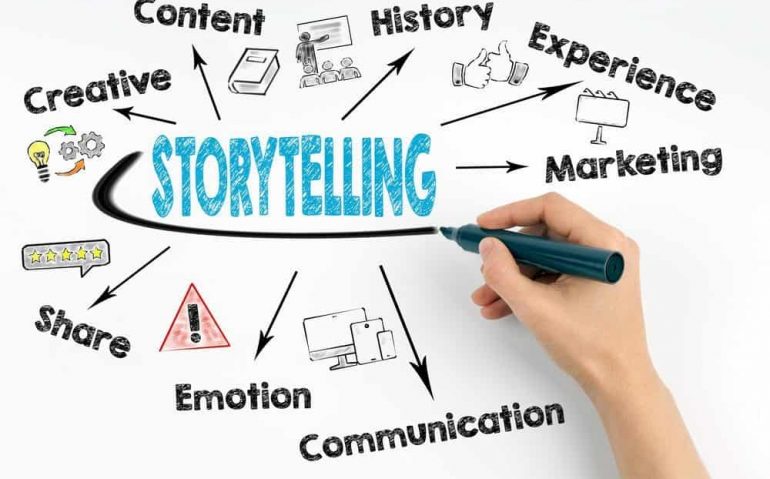Introduction
In today’s competitive market, where consumers are bombarded with countless options, standing out can be a challenge for many businesses. A strong brand story is a powerful tool that can set a company apart and create a lasting emotional connection with its audience. A compelling brand story goes beyond the products or services a company offers; it tells the world who you are, what you stand for, and why you matter. In this article, we will explore the importance of having a strong brand story and provide tips on crafting a narrative that resonates with your target audience.
1. Why a Brand Story Matters
A brand story is more than just a marketing tool; it is the essence of your brand’s identity. It encapsulates your mission, values, and purpose, creating a narrative that customers can connect with on a personal level. A well-crafted brand story can transform your brand from a faceless entity into a relatable and trustworthy companion.
Example: Patagonia’s Environmental Commitment
Patagonia, the outdoor clothing company, is a prime example of a brand with a powerful story. From the beginning, Patagonia has positioned itself as an advocate for environmental conservation. Its brand story is deeply rooted in its commitment to sustainability, which resonates with its environmentally conscious customers. By consistently highlighting its efforts to protect the planet, from using recycled materials to donating a percentage of sales to environmental causes, Patagonia has built a loyal customer base that shares its values.
2. Building Emotional Connections
People connect with stories on an emotional level, which is why storytelling is such a powerful branding tool. A compelling brand story can evoke emotions such as joy, nostalgia, or inspiration, making customers feel a part of something bigger than themselves. When customers feel emotionally connected to a brand, they are more likely to be loyal and advocate for it.
Example: Dove’s Real Beauty Campaign
Dove’s Real Beauty campaign is a great example of building emotional connections through storytelling. Instead of focusing solely on its products, Dove’s campaign centered around the idea of self-acceptance and redefining beauty standards. The campaign featured real women of all shapes, sizes, and ethnicities, sending a powerful message of inclusivity and self-love. This resonated deeply with consumers, creating an emotional connection that strengthened brand loyalty and positioned Dove as a brand that truly cares about its customers.
3. Differentiating Your Brand
A unique brand story sets you apart from competitors. In a market where many products and services can appear similar, your story is what makes you different. It highlights what makes your brand unique and why customers should choose you over others. Your brand story is an opportunity to showcase your personality, values, and what makes your business special.
Example: Warby Parker’s Mission to Give Back
Warby Parker, an eyewear company, differentiates itself through its mission-driven brand story. For every pair of glasses sold, Warby Parker donates a pair to someone in need. This “buy one, give one” model not only sets Warby Parker apart from traditional eyewear companies but also attracts customers who want to make a positive impact with their purchases. By weaving this mission into its brand story, Warby Parker has created a unique identity that resonates with socially conscious consumers.
4. Engaging Content Creation
A strong brand story provides a foundation for engaging content creation. It serves as a consistent theme that guides all your communication efforts, from social media posts and blog articles to video content and advertising campaigns. A cohesive story across all platforms ensures that your message is clear and memorable, making it easier for customers to understand and remember your brand.
Example: Airbnb’s Belong Anywhere
Airbnb’s brand story revolves around the idea of belonging. With the tagline “Belong Anywhere,” Airbnb emphasizes the personal connections and unique experiences that come with staying in someone’s home rather than a hotel. This brand story is consistently reflected in their content, from heartwarming videos of hosts and guests to user-generated content showcasing diverse travel experiences. By focusing on the concept of belonging, Airbnb has created a strong and relatable narrative that resonates with travelers around the world.
5. Inspiring Customer Loyalty
A compelling brand story not only attracts new customers but also fosters loyalty among existing ones. When customers feel aligned with a brand’s story and values, they are more likely to continue supporting it and become brand advocates. Loyal customers are invaluable as they not only make repeat purchases but also spread positive word-of-mouth, attracting new customers.
Example: Nike’s Just Do It
Nike’s “Just Do It” campaign is one of the most successful brand stories in history. By celebrating the spirit of determination, perseverance, and achievement, Nike has inspired millions of people to push their limits and pursue their goals. This powerful narrative has built a loyal customer base that identifies with Nike’s message and sees the brand as a motivator and partner in their journey towards success.
Conclusion
A strong brand story is an essential component of successful branding. It differentiates your brand, builds emotional connections, inspires loyalty, and provides a foundation for engaging content. By crafting a compelling narrative that reflects your brand’s mission, values, and purpose, you can connect with your audience on a deeper level and create a lasting impact. Remember, your brand story is not just what you tell people—it’s what they believe about you based on the experience they have with your brand.


